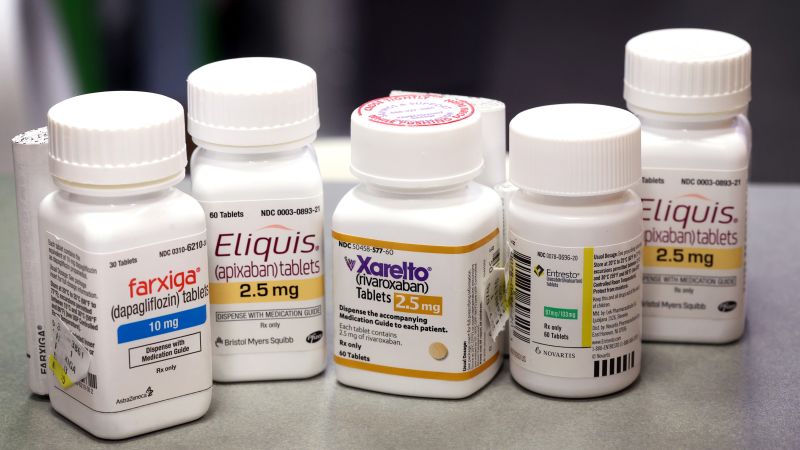The Biden administration recently announced that Medicare will have the power to negotiate drug prices, resulting in an estimated $6 billion in savings for the federal government and a $1.5 billion reduction in out-of-pocket costs for seniors. This move comes in response to the rising costs of prescription medications and will have a significant impact on millions of Medicare enrollees who take these drugs. The negotiation program was made possible by the 2022 Inflation Reduction Act and is expected to lead to significant cost savings starting in 2026.
The initial negotiations focused on 10 of the most widely used and expensive drugs taken by Medicare enrollees, including medications such as Eliquis, Jardiance, and Enbrel. The estimated $6 billion in savings is based on Medicare’s 2023 costs for these drugs and takes into account rebates and discounts provided to Part D plans by drugmakers. The Congressional Budget Office has projected that the negotiation program will save Medicare $100 billion over a decade, highlighting the potential long-term benefits of this initiative.
While many Medicare enrollees are expected to see savings at the pharmacy counter due to lower drug prices, the impact will vary depending on their Medicare Part D drug coverage. Additionally, the implementation of a $2,000 annual cap on out-of-pocket costs under the Inflation Reduction Act will help limit patients’ exposure to high drug expenses. Despite the potential benefits for enrollees, the pharmaceutical industry has raised concerns about the impact of price negotiations on their businesses and innovation.
Multiple drug manufacturers have filed lawsuits challenging the constitutionality of the negotiation program, but recent court rulings have generally been in favor of the government. While some companies have expressed confidence in navigating the impact of the negotiations on their businesses, others have raised concerns about the long-term implications for innovation and patient care. The industry has warned that government price setting could harm research into new drugs and alter the incentives for medicine development.
CMS considered various factors when developing its initial offer for drug price negotiations, including the clinical benefits of the medications and the prices of alternatives. The agency engaged in extensive negotiations with drug manufacturers, allowing them to present proposed prices and make counteroffers throughout the process. Following the initial round, Medicare will be able to negotiate prices for additional drugs in the coming years, with plans to expand the program to include Part B drugs administered by doctors by 2028. The names of the drugs in the next round of negotiations will be announced by February 1.













